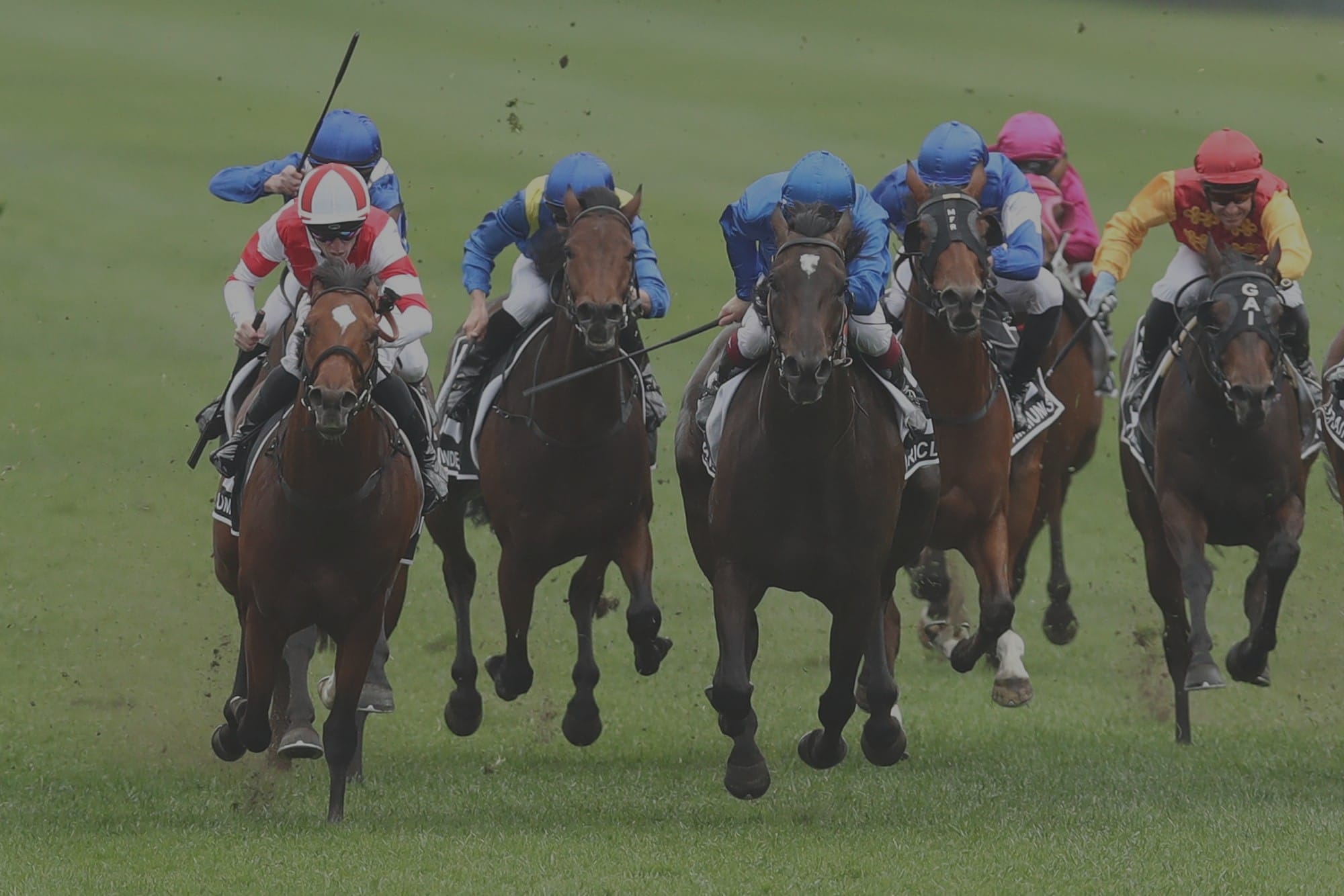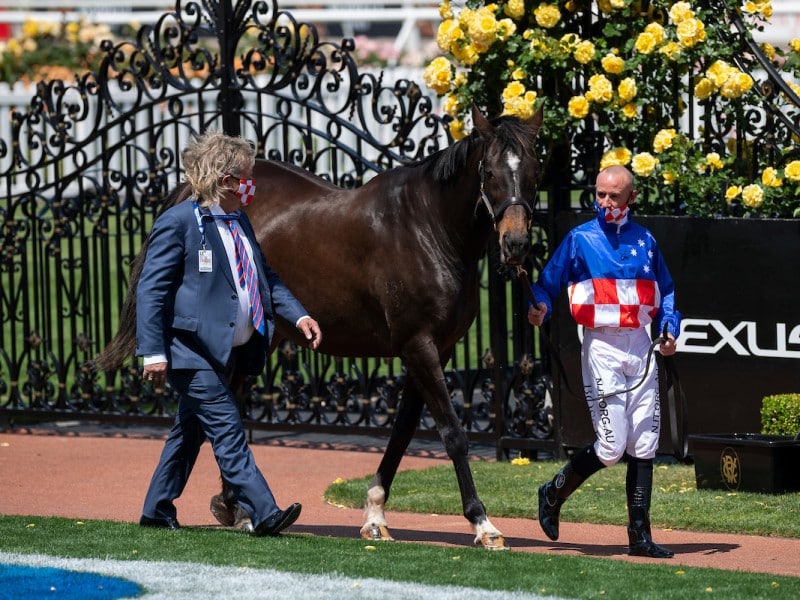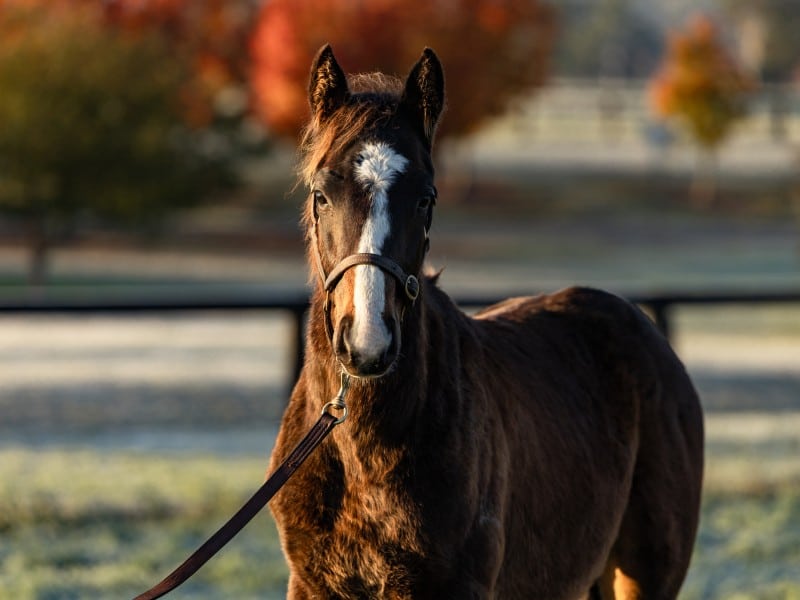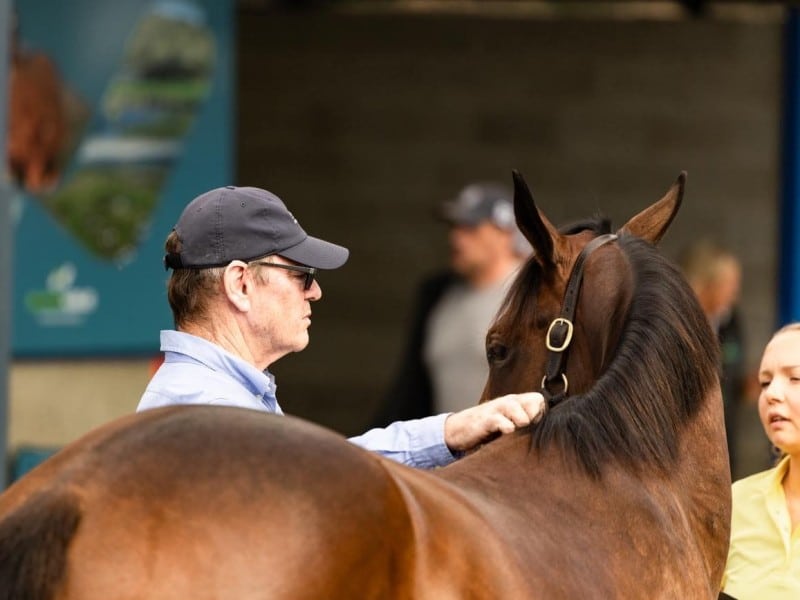Crocs, bull sharks, oil and sand – The Darwin difference
Training at Darwin’s Fannie Bay has its fair share of unique challenges but legendary horseman Gary Clarke tells Matt Stewart ahead of Monday’s Darwin Cup that he wouldn’t be anywhere else.
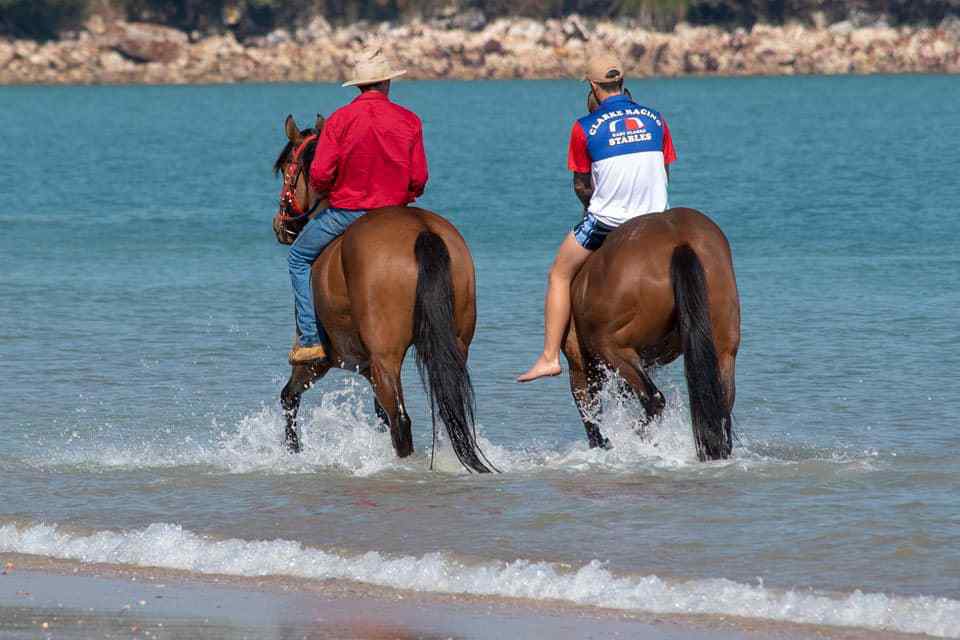
The king of Darwin horse racing is perfectly cast.
If you were to pen a fictional tale of a horseman bushie who’d carved his legend in the vast and punishing outback, you’d tell the story of strong, stoic figures like Gary Clarke, the champion trainer who’d “rather sleep in a swag than a bed most days”.
Mick ‘Crocodile’ Dundee was drawn from people like Clarke.
Clarke, for instance, swims horses in the harbour down near the Darwin Casino most mornings. A sharp eye is essential.
Over 200 ‘salties’ are removed from that harbour every year. (Down south, at Balnarring or Safety Beach, you might take fright at a friendly dolphin.)
“We’re not badly placed as far as crocs go. You get them but people tend to see them pretty quick. They’re a lot easier to spot than bull sharks (which also inhabit the harbour),” Clarke said.
The southerners who have made the Darwin Cup carnival an annual pilgrimage each August are enticed by the warmth and the edginess. Darwin feels like a frontier town. The waters are dangerous. The Territory is not lawless but it’s loose. Prior to 2007, most Territory roads had no speed limits.
The annual racing carnival turns Darwin into a melting pot. Southerners – horse and human – have been making the pilgrimage for decades, although increasingly expensive flights from Sydney and Melbourne will hit the carnival hard in coming days. The once-bustling infield at Fannie Bay will be closed this year.
Despite this, the most successful trainer in Territory history will again flood the festival with horses, many of them cherry-picked from down south. Not all horses handle the Enviro-Oil surface at Fannie Bay. They need to be on-pace and/or dirt-bred. In the Territory, you must adapt.
Clarke has 40 in work, and every one of them carries a race entry either Saturday for the Palmerston Sprint meet or Monday for Cup day.
In 1996, when he and wife Sharlene took the red-rimmed road from western Queensland to Darwin, Clarke never imagined he’d become Darwin’s most celebrated horseman; a winner of almost every major race as a jockey and then 11-time premier trainer.
Clarke had run his race in outback western Queensland, where he had been a multiple-champion jockey on tracks where galloping horses created dust storms.
Besides, he thought the fishing might be good up in the Territory.
“I’d done as much as I could do as far as premierships and that sort of stuff. The government had just taken over racing and were putting the squeeze on country tracks,” he said of outback Queensland racing.
“So, we went for a drive to Darwin and I liked what I saw. The potential for racing was huge. The prize money was good and field sizes were small with maybe two or three chances.
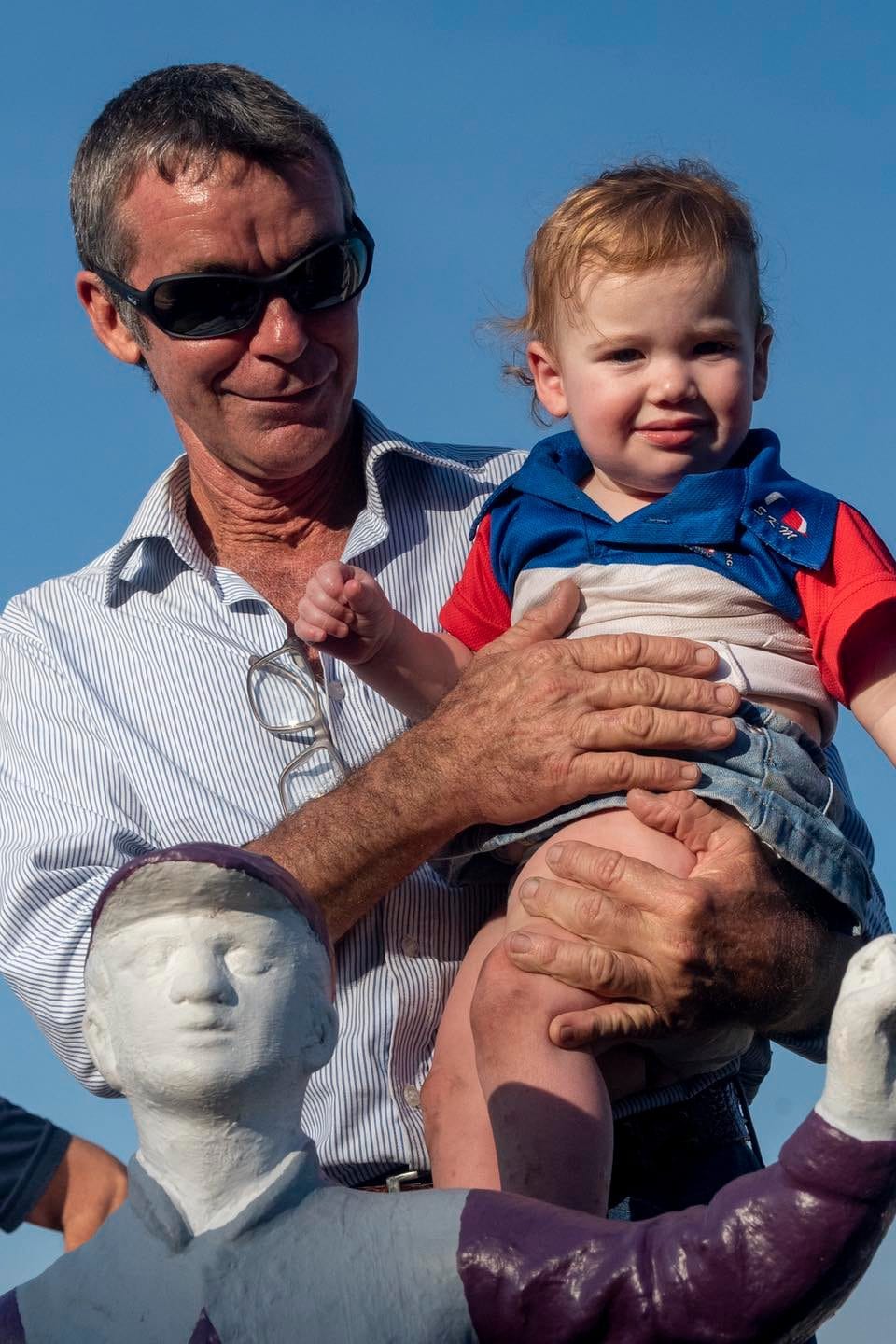
“The way I saw it, I could do some riding, go fishing in the wet season and prospecting in the dry season. We drove into town and I thought ‘I’ve got the whole year covered’.
“We didn’t come up here with high expectations. We just worked hard.”
As a jockey, Clarke won every feature Fannie Bay race other than the Derby and Palmerston Sprint. He won the Cup on Star Bullet in 2000. He took up a dual licence in 2001 and retired as a jockey in 2007. He has won three Cups and five Palmerston Sprints.
Darwin is closer to Indonesia than 90 per cent of Australia but Clarke has become part of the story of some of Australian racing’s biggest players. He draws them to the Territory.
“We didn’t come up here with high expectations. We just worked hard.” – Gary Clarke
In 2022, Clarke trained Playoffs to win the Cup. The horse was previously trained by Ciaron Maher and Maher stalwarts Colin McKenna and John O’Neill appear in a group victory photo that takes pride of place on the home page of the Clarke Racing website.
Playoffs is among the Clarke runners in Monday’s Cup.
“Johnny O’Neill had won something like 30 Group One races as an owner but he said it was right up there with his biggest thrills. He said the Darwin Cup would sit between his Melbourne Cups and Cox Plate in the trophy cabinet,” Clarke said.
There was a tragic backdrop to that 2022 Cup. Clarke’s son Guy had committed suicide just months earlier. At the time Clarke bravely spoke of Guy’s mental battles “and I still get a lump in my throat thinking about him now”.
In 2013, stable jockey Simone Montgomery lost her life in a race fall on Darwin Cup day. The rest of the meeting, including the Cup, was postponed. Montgomery’s mount was trained by her father, Peter.
Clarke later attended an inquiry, insisting the horse had been fit to race.
“Guy and Simone … they were two very dark periods in our life. What saved us was having good staff to allow us to have our downtime and find our feet again,” he said.
“I’ll never forget the day Simone died. She was riding her dad’s horse. It was going to win and people tried to blame the horse. My number one thing was to take the blame off the horse, which I did at the coroner’s inquest. It had placed a huge burden on her dad.”

The Darwin “difference” is not just about weather and crocs in the harbour.
The track has always been tricky, first with a sump-oil surface then later “Enviro Oil”.
“The greenies got hold of it and they didn’t like the idea of sump oil,” Clarke said with a chuckle.
To win at Fannie Bay, you must take to it. Good horses who couldn’t hack it are distanced.
“Number one, they have to have ability. Midweek city class level down south. Some of the feature races up here are bloody hard to win,” Clarke said.
“They have to have an on-pace racing pattern. In a lot of cases, they have to have the breeding to say they will like the surface. I’ve got a list of breeds I like; Reward For Effort, Nicconi, others. A lot of them have grown a leg up here.”
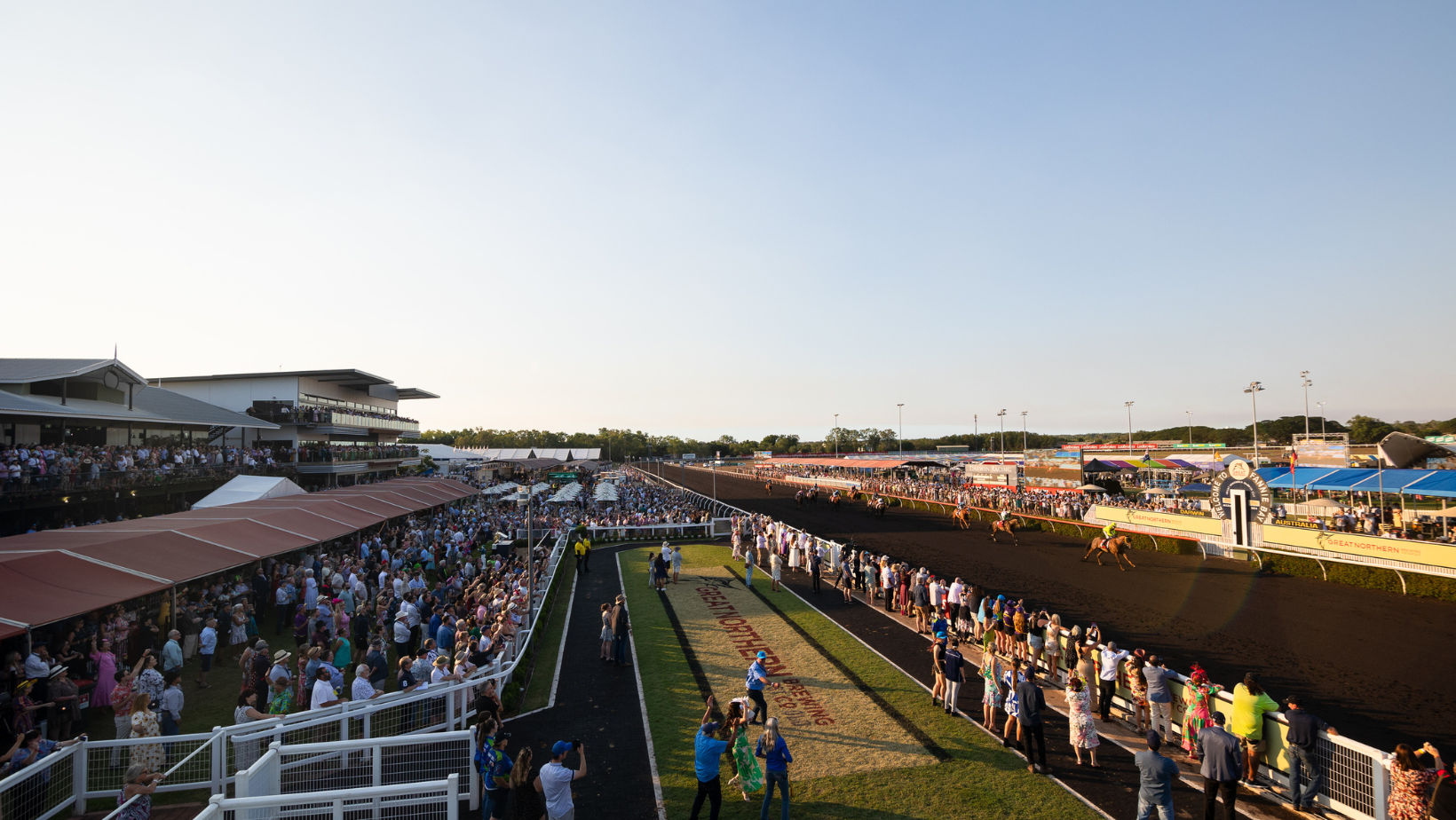
Clarke does not struggle for owners. Southerners send Clarke a horse, wait until August, and pack their shorts and thongs.
He has spent a lifetime fending off threats and dusting off tough and tragic times as best he could.
He is aware the Darwin Cup is about to suffer a downturn. But he believes it will rise again.
“We’re still seeing a big influx of tourists around town. The numbers will be down because of those steep airfares but I spoke to someone the other day and they said it’s across the board, not just the Darwin Cup,” he said.
The punting fortunes of the travellers who have forked out for flights or arrived via long days on the road with caravans in tow will hinge partly on the fortunes of Clarke and his swarm of runners these next few days.
We’re not badly placed as far as crocs go. You get them but people tend to see them pretty quick. They’re a lot easier to spot than bull sharks (which also inhabit the harbour)” – Darwin trainer Gary Clarke
Clarke knows he will have winners. But which ones?
“Hmmm. I’ve got a couple of Cup horses going quite well. Wolfburn ran third last year and is a super tough five-year-old. He’s more seasoned than last year and that’s so important up here,” he said.
“Playoffs had had 12 months off but has the ability. It’s just a matter of him finding it. You can’t work them in Darwin like you can down south mostly because of the climate.
“To win up here you’ve got to be fit and tough.”

